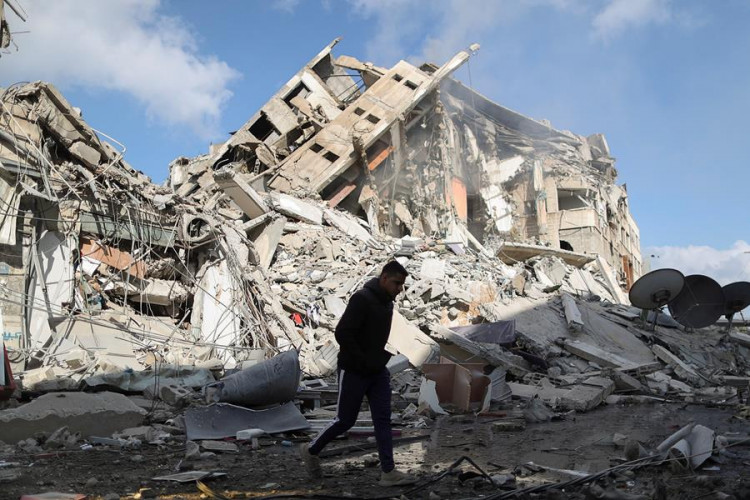The International Court of Justice (ICJ) has mandated Israel to undertake comprehensive measures to avert acts of genocide against Palestinians in Gaza, amidst ongoing military operations that have resulted in significant Palestinian casualties. While the court's directive falls short of demanding a ceasefire, it emphasizes Israel's obligation under the Genocide Convention to prevent severe harm to Palestinians in the embattled region. This ruling aligns with the ICJ's decision to retain jurisdiction over the case, rejecting Israel's petition for dismissal.
The judicial body's verdict arrives in response to allegations presented by the South African government, accusing Israel of genocidal actions against Palestinians. The case, deliberated early January following South Africa's December submission, underscores the ICJ's role in adjudicating matters of grave international concern. Despite the ICJ's lack of enforcement mechanisms, its decisions carry significant moral and reputational weight, potentially influencing global perceptions and diplomatic relations.
The court's concern extends to the plight of over 200 Israelis held by Hamas, advocating for their immediate liberation. This aspect underscores the multifaceted humanitarian crises stemming from the conflict, which has seen vast numbers of Palestinians displaced, a public health emergency, and a dire need for humanitarian aid.
The ICJ's provisional measures, while not compelling a ceasefire, outline Israel's responsibilities to minimize harm to Palestinian civilians and facilitate the delivery of essential aid. These measures, reflecting the judges' overwhelming consensus, signify international legal scrutiny over Israel's military actions and their compliance with international humanitarian law.
Israeli Prime Minister Benjamin Netanyahu's response to the allegations reiterates Israel's stance on self-defense and its efforts to mitigate civilian harm, despite accusations of using civilians as shields by Hamas. The Israeli government's participation in the ICJ hearings, marked by the presence of a high-level legal delegation, indicates the case's significance and the potential implications of the court's decisions on Israel's global standing.
The ruling has elicited varied reactions, with Palestinian officials welcoming the court's order as a pivotal moment for justice. However, Israel's dismissal of the genocide claims as "outrageous" highlights the deep-seated contention surrounding the conflict's narrative and the international community's role in addressing it.
The ICJ's interim decision, pivotal in its immediate legal and humanitarian implications, sets the stage for a protracted legal examination of South Africa's allegations against Israel. The unfolding legal proceedings will likely continue to attract global attention, reflecting the international community's vested interest in the resolution of one of the world's most enduring and complex conflicts.




